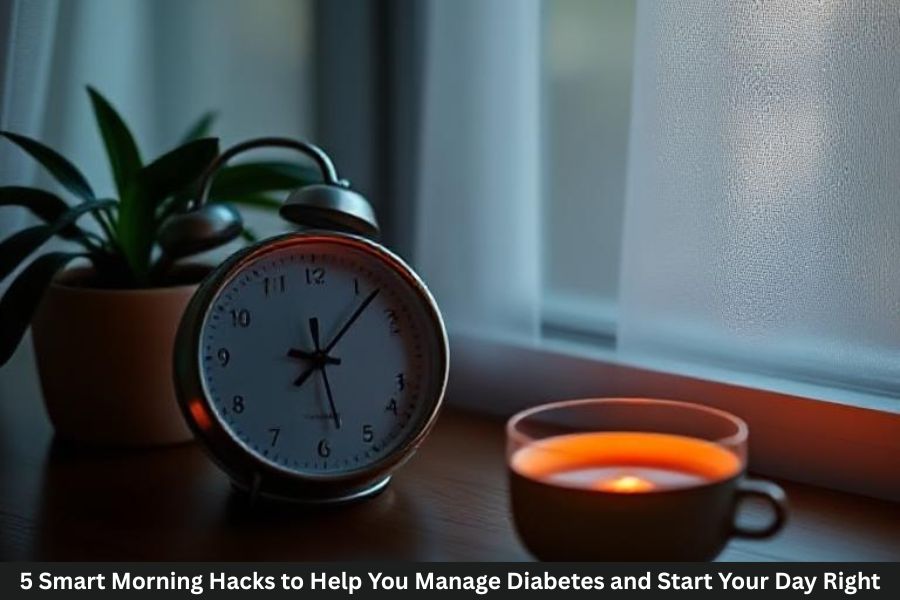Extreme mood shifts are something many women experience throughout their lives. Whether it’s a sudden burst of irritation, overwhelming sadness, or unexpected bursts of energy, these changes can feel unpredictable and unsettling. But what exactly causes these fluctuations? In this article, we’ll explore various factors that contribute to mood swings in women, helping you understand the underlying causes and how to manage them effectively.
Hormonal Fluctuations
Menstrual Cycle and Mood Swings
One of the most well-known causes of mood shifts in women is hormonal fluctuations throughout the menstrual cycle. As estrogen and progesterone levels rise and fall, they can significantly impact mood. For some women, this results in irritability, sadness, or even anxiety, especially during the luteal phase (the second half of the menstrual cycle). These mood swings are often mild but can become more pronounced in some individuals.
Premenstrual Syndrome (PMS)
PMS is another common culprit. Women may experience physical and emotional symptoms like fatigue, bloating, headaches, and mood swings before menstruation. PMS can affect both mood and behavior, making it one of the leading causes of irritability and emotional lability.
Premenstrual Dysphoric Disorder (PMDD)
For about 5-8% of women, PMS escalates into PMDD, a severe form of premenstrual syndrome. PMDD causes extreme mood swings, including depression, irritability, and anxiety, which can significantly interfere with daily life.
Pregnancy and Postpartum Changes
Pregnancy is a time of immense hormonal shifts, especially with the rise in estrogen and progesterone levels. These fluctuations can cause women to experience everything from mood swings to more severe emotional distress. After childbirth, many women also struggle with postpartum depression, a condition that can significantly affect emotional well-being.
Perimenopause and Menopause
As women approach menopause, hormone levels fluctuate drastically. During perimenopause, many women report mood swings, irritability, and feelings of sadness or anxiety. These symptoms often continue through menopause and can be one of the most challenging aspects of the transition.
Mental Health Conditions
Depression and Its Impact on Mood
Depression is a major factor in extreme mood shifts. When a woman is dealing with depression, it can cause persistent sadness, fatigue, and irritability. These mood swings may seem uncontrollable, often feeling like waves of emotion that fluctuate from extreme lows to periods of “okayness.”
Anxiety and Its Role in Emotional Instability
Anxiety can cause mood swings in women as well. Constant worry, racing thoughts, and an underlying sense of fear can lead to emotional roller coasters. Sometimes, the anxiety itself triggers irritability or an inability to handle minor stressors, further contributing to mood instability.
Bipolar Disorder in Women
Bipolar disorder involves extreme mood swings, from manic episodes (high energy, impulsive behavior) to depressive episodes (low energy, sadness). Women tend to experience different patterns than men, including more frequent depressive episodes. Hormonal changes and social stressors may make bipolar symptoms more intense in women.
Stress and Life Events
Major Life Changes and Mood Shifts
Significant life events such as divorce, loss of a loved one, or moving can trigger intense emotional reactions. These events often disrupt one’s sense of stability, causing mood swings. For some women, stress can trigger irritability or sadness, and the emotional reaction may feel unpredictable.
Chronic Stress and Emotional Regulation
Chronic stress, whether due to work, family, or personal issues, can severely affect emotional regulation. The more a woman is under stress, the more likely it is that her emotional responses will become exaggerated, leading to frequent mood swings.
Diet and Lifestyle
The Impact of Diet on Mood
What you eat plays a big role in how you feel. Diets high in processed foods, sugars, and caffeine can contribute to fluctuations in energy and mood. For example, after a sugar rush, women may experience a crash, leading to irritability and fatigue. A balanced diet with plenty of fruits, vegetables, and whole grains helps maintain a more stable mood.
Sleep Patterns and Mood Swings
Lack of sleep or poor-quality sleep is another major factor that can contribute to mood instability. Sleep deprivation can lead to irritability, frustration, and an inability to cope with stress effectively. Regular, restful sleep is essential for maintaining a positive mood.
Caffeine, Sugar, and Processed Foods
Caffeine, while giving you a temporary energy boost, can also cause mood swings when it wears off. Similarly, consuming too much sugar or processed food can lead to blood sugar imbalances, which may cause energy crashes and irritability.
Thyroid Imbalance
Hypothyroidism and Mood Instability
Hypothyroidism, or an underactive thyroid, can lead to symptoms like fatigue, depression, and irritability. Women are more likely to experience thyroid imbalances than men, and an undiagnosed thyroid problem can easily be mistaken for other mood-related conditions.
Hyperthyroidism and Emotional Disturbances
On the flip side, hyperthyroidism (an overactive thyroid) can cause anxiety, restlessness, and mood swings. Women may feel jittery or overly anxious, and this can disrupt their emotional stability.
Medications
The Effect of Birth Control on Mood
Certain hormonal birth control methods, especially those with high levels of estrogen, can cause mood changes. For some women, these changes can be significant, ranging from irritability to depression. It’s important to consult with a doctor if birth control is suspected to be affecting mood.
Side Effects of Antidepressants and Other Medications
Many medications, including antidepressants, can have mood-related side effects. Some medications may lead to emotional numbness, while others can cause increased anxiety or irritability. It’s important to talk to a healthcare provider if medication is contributing to mood swings.
Physical Health Issues
Chronic Illnesses and Their Emotional Effects
Chronic health conditions, such as autoimmune disorders, fibromyalgia, or chronic fatigue syndrome, can have a profound effect on a woman’s emotional health. Pain, fatigue, and ongoing treatment can lead to feelings of frustration, sadness, and mood instability.
Neurochemical Imbalances
Imbalances in neurotransmitters like serotonin and dopamine can also cause mood swings. These imbalances can arise from genetics, lifestyle, or other health conditions.
Cultural and Social Pressures
Gender Roles and Emotional Expectations
Societal expectations about how women should behave emotionally can contribute to mood swings. Women may feel pressured to conform to certain roles, which can cause internal stress and lead to emotional instability.
Societal Pressures Contributing to Stress
In today’s fast-paced world, women often juggle multiple roles—caregiver, professional, partner, etc. This constant pressure can overwhelm their emotional resources, leading to mood fluctuations.
Genetic Factors
Hereditary Influences on Mood Disorders
Some women are genetically predisposed to certain mood disorders, such as depression or bipolar disorder. Family history plays a significant role in the likelihood of experiencing extreme mood shifts.
Family History and Emotional Regulation
If a woman’s close relatives have struggled with emotional regulation or mood disorders, she may be more likely to experience similar difficulties. Genetic factors influence how the brain regulates emotions, making some women more susceptible to mood swings.
Unresolved Emotional Issues
Trauma and Emotional Triggers
Unresolved trauma from the past—whether emotional, physical, or psychological—can lead to sudden, intense mood shifts. Triggers can set off a cascade of emotional reactions that may seem disproportionate to the situation at hand.
Coping Mechanisms and Mood Shifts
The way a woman copes with stress and emotional pain can influence how her mood shifts. Women with unhealthy coping mechanisms (e.g., avoiding emotions, overworking) may experience more frequent emotional fluctuations.
How to Manage and Prevent Extreme Mood Shifts
Managing extreme mood shifts involves adopting healthy habits, seeking professional help, and making lifestyle changes. Practices such as regular exercise, mindfulness, and therapy can help maintain emotional stability.
When to Seek Professional Help
If extreme mood swings are significantly affecting daily life, it’s important to seek professional help. Therapy, counseling, and medication can be used to treat underlying conditions contributing to mood instability.
Conclusion
Extreme mood shifts in women can stem from a combination of hormonal fluctuations, mental health conditions, stress, lifestyle factors, and even genetics. Understanding the underlying causes is the first step toward managing and improving emotional well-being. With the right approach, women can find ways to cope with these changes and regain emotional balance.
FAQs
1.Can mood swings be caused by something other than hormones?
Yes, factors like stress, mental health conditions, diet, and lifestyle choices can also contribute to mood swings.
2. How can I manage mood swings naturally?
Maintaining a healthy lifestyle with regular exercise, a balanced diet, and good sleep hygiene can help stabilize mood.
3. Are extreme mood swings a sign of a mental health condition?
In some cases, yes. Conditions like depression, anxiety, and bipolar disorder can cause extreme mood fluctuations.
4. Should I see a doctor for mood swings?
If mood swings are affecting your daily life, it’s a good idea to consult with a healthcare provider for proper diagnosis and treatment.
5. Can birth control cause mood swings?
Yes, certain types of hormonal birth control can lead to mood changes, and it’s important to discuss any concerns with a healthcare provider.




Your point of view caught my eye and was very interesting. Thanks. I have a question for you. https://www.binance.info/ph/register?ref=IU36GZC4
I don’t think the title of your article matches the content lol. Just kidding, mainly because I had some doubts after reading the article.
Thanks for sharing. I read many of your blog posts, cool, your blog is very good. https://accounts.binance.info/es-MX/register?ref=GJY4VW8W
Your point of view caught my eye and was very interesting. Thanks. I have a question for you.
Your point of view caught my eye and was very interesting. Thanks. I have a question for you.
Thank you for your sharing. I am worried that I lack creative ideas. It is your article that makes me full of hope. Thank you. But, I have a question, can you help me? https://www.binance.com/register?ref=IXBIAFVY
I don’t think the title of your article matches the content lol. Just kidding, mainly because I had some doubts after reading the article.
Can you be more specific about the content of your article? After reading it, I still have some doubts. Hope you can help me. https://accounts.binance.info/en-ZA/register-person?ref=B4EPR6J0
Thanks for sharing. I read many of your blog posts, cool, your blog is very good. https://www.binance.com/pt-PT/register?ref=KDN7HDOR